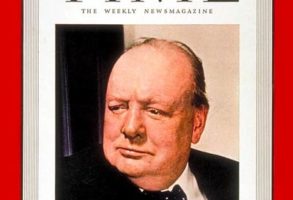
Published January 13, 2020
It used to be embarrassing to be caught talking to yourself. The cellphone changed that: Now it is common to see people walking alone, chattering to someone invisible. Singing to yourself is different. Those of us who sing to ourselves do it as a compromise between karaoke and meditation.
On a cold morning, I stood on the platform of a small railroad station in upstate New York, waiting for a train. I thought I was alone. I started singing in a low voice, giving myself up to the song in an abstracted way, half-aware. Singing takes you away from the harassing present. In that, it resembles prayer.
Not that my songs are religious. The ones I know by heart are mostly secular odds and ends from a long time ago—from memorized recordings of Woody Guthrie, Pete Seeger, Paul Robeson, Burl Ives or, less remotely, from Bob Dylan (“Don’t Think Twice, It’s All Right” and “Mr. Tambourine Man”), Arlo Guthrie (many selections), Joan Baez, Kris Kristofferson and Janis Joplin. The lefties had the good songs. Sung at this distance in time, they are cleansed of politics—and therefore sweet.
My list, mostly profane and archaic, ascends now and then to the explicitly sacred. I sing “Amazing Grace,” or “Lonesome Valley.”
These are American dream songs. The music calls up the past and gives it a reverent dusting of myth. I sing “Ain’t Gonna Let Nobody Turn Me Around,” starting softly and distantly and then building the volume. That was how I first heard the song one summer evening in 1964 when I was a young reporter covering a civil rights march that went from a church rally on 16th Street Northwest down to Lyndon B. Johnson’s White House: “Ain’t gonna let George Wallace / turn me ’round, turn me ’round, turn me ’round . . .” As if repairing an injury, music may reconnect the mind, with a surgeon’s precision, to its severed experiences.
That day on the railway platform, I sang Dion’s “Abraham, Martin and John.” When I finished the song, I turned around, and a woman I hadn’t noticed on the platform gave me a satirical pitter-patter of applause.
I’m fond of the cheatin’ songs, country tunes that deal with the pleasures of sin and the wages thereof (giving equal time to each)—mournful peckerwood fables of folly and comeuppance. There’s Hank Snow’s “Ninety Miles an Hour (Down a Dead-End Street),” for example, whose story ends, DOA, as it were, in the emergency room of love. Snow warns us that adultery is “like a mad motorcycle with the devil in the seat / goin’ ninety miles an hour down a dead-end street.”
There’s almost always moralism in the tale. In “Streets of Laredo,” the mortally wounded young man accepts his punishment—“For I’m a young cowboy and I know I done wrong”—in contrast to Johnny Cash in “Folsom Prison Blues,” who “shot a man in Reno just to watch him die.”
Singing—a sentimental sacrament—assuages loneliness. The songs immerse the singer, for a moment, in other times, in other people’s stories.
Mr. Morrow is a senior fellow at the Ethics and Public Policy Center.








